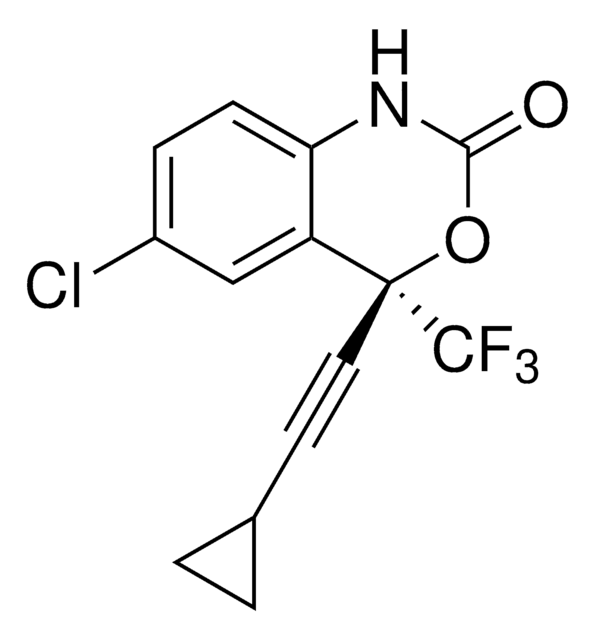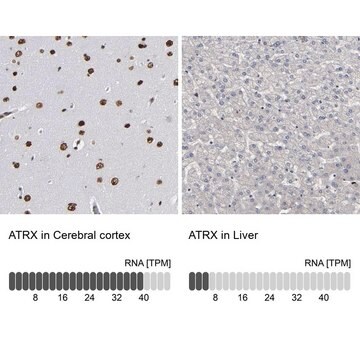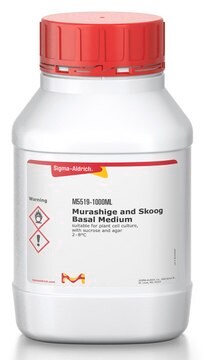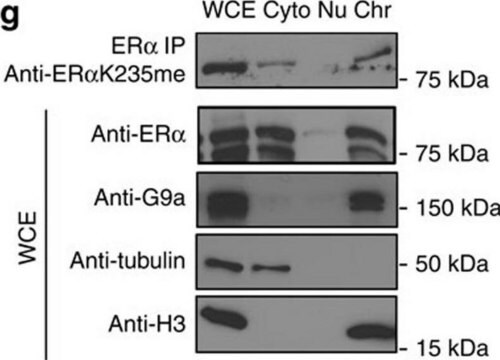SML0141
Trilostane
≥98% (HPLC)
Sinónimos:
(4α,5α,17β)-3,17-dihydroxy-4,5-epoxyandrost-2-ene-2-carbonitrile
About This Item
Productos recomendados
Quality Level
assay
≥98% (HPLC)
form
powder
color
white to tan
solubility
DMSO: ≥17 mg/mL
storage temp.
2-8°C
SMILES string
C[C@]12CC[C@H]3[C@@H](CC[C@@]45O[C@@H]4C(O)=C(C[C@]35C)C#N)[C@@H]1CC[C@@H]2O
InChI
1S/C20H27NO3/c1-18-7-6-14-12(13(18)3-4-15(18)22)5-8-20-17(24-20)16(23)11(10-21)9-19(14,20)2/h12-15,17,22-23H,3-9H2,1-2H3/t12-,13-,14-,15-,17+,18-,19+,20+/m0/s1
InChI key
KVJXBPDAXMEYOA-CXANFOAXSA-N
Gene Information
human ... HSD3B2(3284)
General description
Application
Biochem/physiol Actions
Features and Benefits
signalword
Warning
hcodes
Hazard Classifications
Eye Irrit. 2 - Repr. 2 - Skin Irrit. 2
Storage Class
11 - Combustible Solids
wgk_germany
WGK 3
flash_point_f
Not applicable
flash_point_c
Not applicable
Elija entre una de las versiones más recientes:
¿Ya tiene este producto?
Encuentre la documentación para los productos que ha comprado recientemente en la Biblioteca de documentos.
Nuestro equipo de científicos tiene experiencia en todas las áreas de investigación: Ciencias de la vida, Ciencia de los materiales, Síntesis química, Cromatografía, Analítica y muchas otras.
Póngase en contacto con el Servicio técnico









